
07 March 2023Climate Change, Publications, Risk, TCFD
POPULAR CONTENT

07 March 2023Climate Change, Publications, Risk, TCFD

17 May 2022Events, Roundtables

28 November 2022Publications, SDGs and Impact
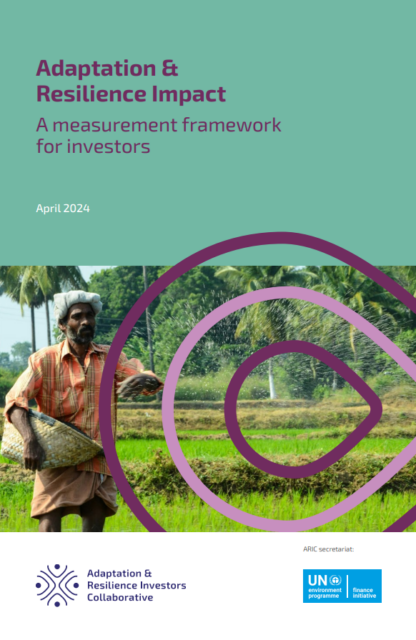
This report provides a clear, consistent, and robust framework for measuring the impact of investments on climate adaptation and resilience. It demonstrates how the metrics framework can be embedded in the investment cycle and outlines a set of impact metrics examples that can be used for individual investments or aggregated across portfolios.
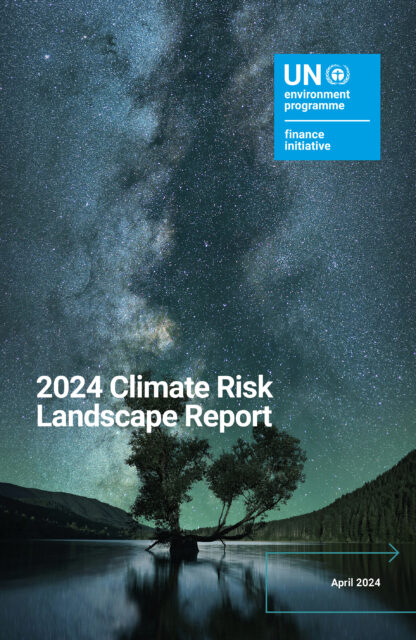
In 2023, temperatures shattered records with a 116-day streak of peak temperatures. As the urgency to address and adapt to…

La Taxonomía de Finanzas Sostenibles de Panamá define lo que es una inversión ambientalmente sostenible para Panamá y establece un…
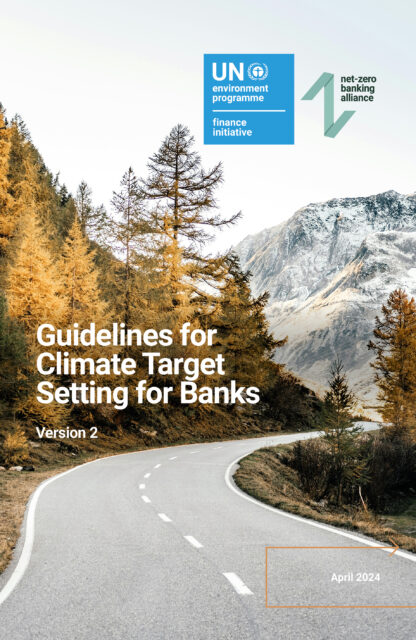
'The Guidelines for Climate Target Setting for Banks - Version 2' outline key principles to underpin the setting of credible targets in line with the science and achieving the most ambitious temperature goals of the Paris Agreement.
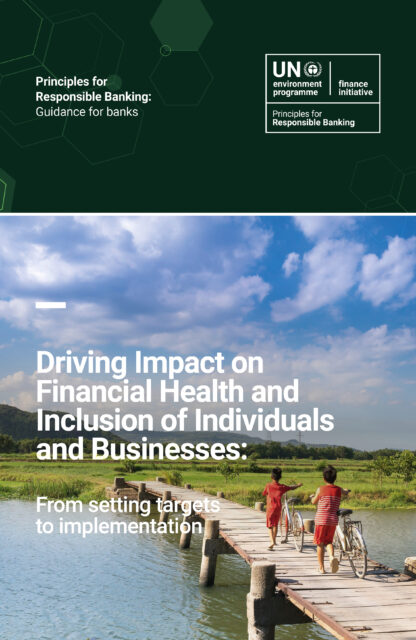
The new PRB guidance, "Driving Impact on Financial Health and Inclusion: From Setting Targets to Implementation", supports financial institutions prioritising financial well-being by creating common definitions for Financial Health and Inclusion, proposing a Pathway to Impact, and offering standard indicators and methodologies for strategy development and implementation. It provides practical tools to set impactful targets and create robust strategies to promote financial well-being, and tailor action plans to meet the unique needs of individuals and businesses.
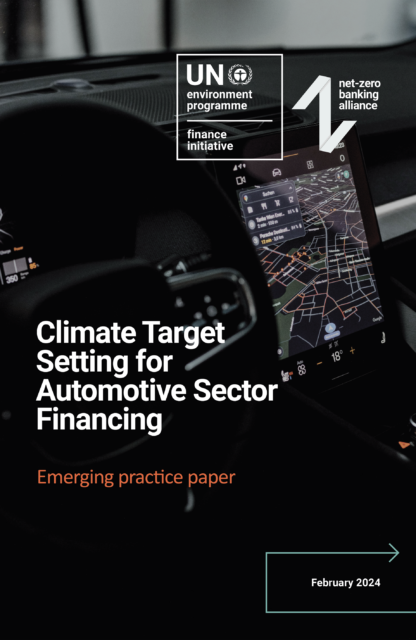
'Climate Target Setting for Automotive Sector Financing' is the second in a series of publications developed by members of the Net-Zero Banking Alliance (NZBA) with the goal of assisting banks by outlining the choices they face when setting climate-related targets for financing in various carbon-intensive sectors of the real economy.
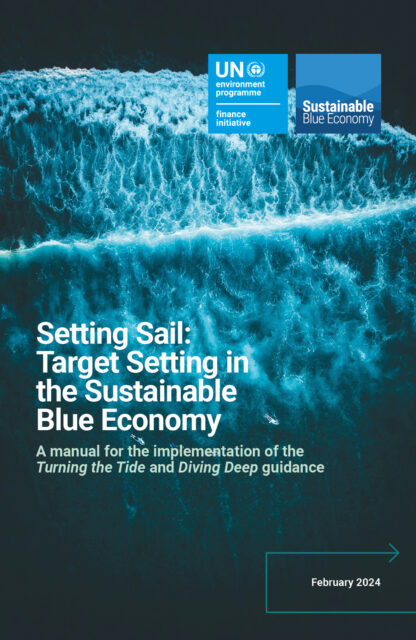
Through the Sustainable Blue Economy Finance Initiative’s Seafood Finance Working Group, co-convened with WWF, UNEP FI has developed this manual…
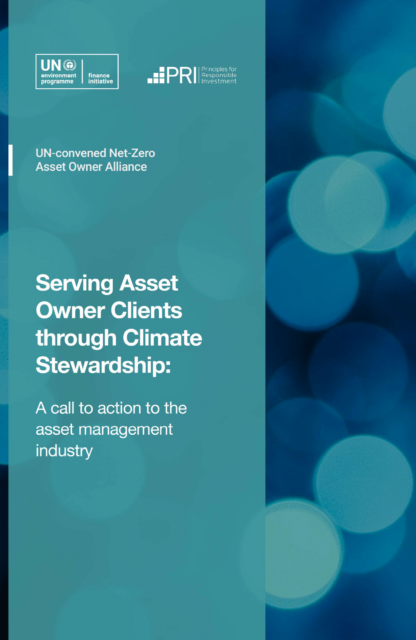
In this call to action, Net-Zero Asset Owner Alliance (NZAOA) sends a clear message to the asset management industry that “Serving Asset Owner Clients [is only possible] through Climate Stewardship”.

The insurance sector plays a fundamental role in managing and mitigating climate risks, offering protection against financial losses and enabling…
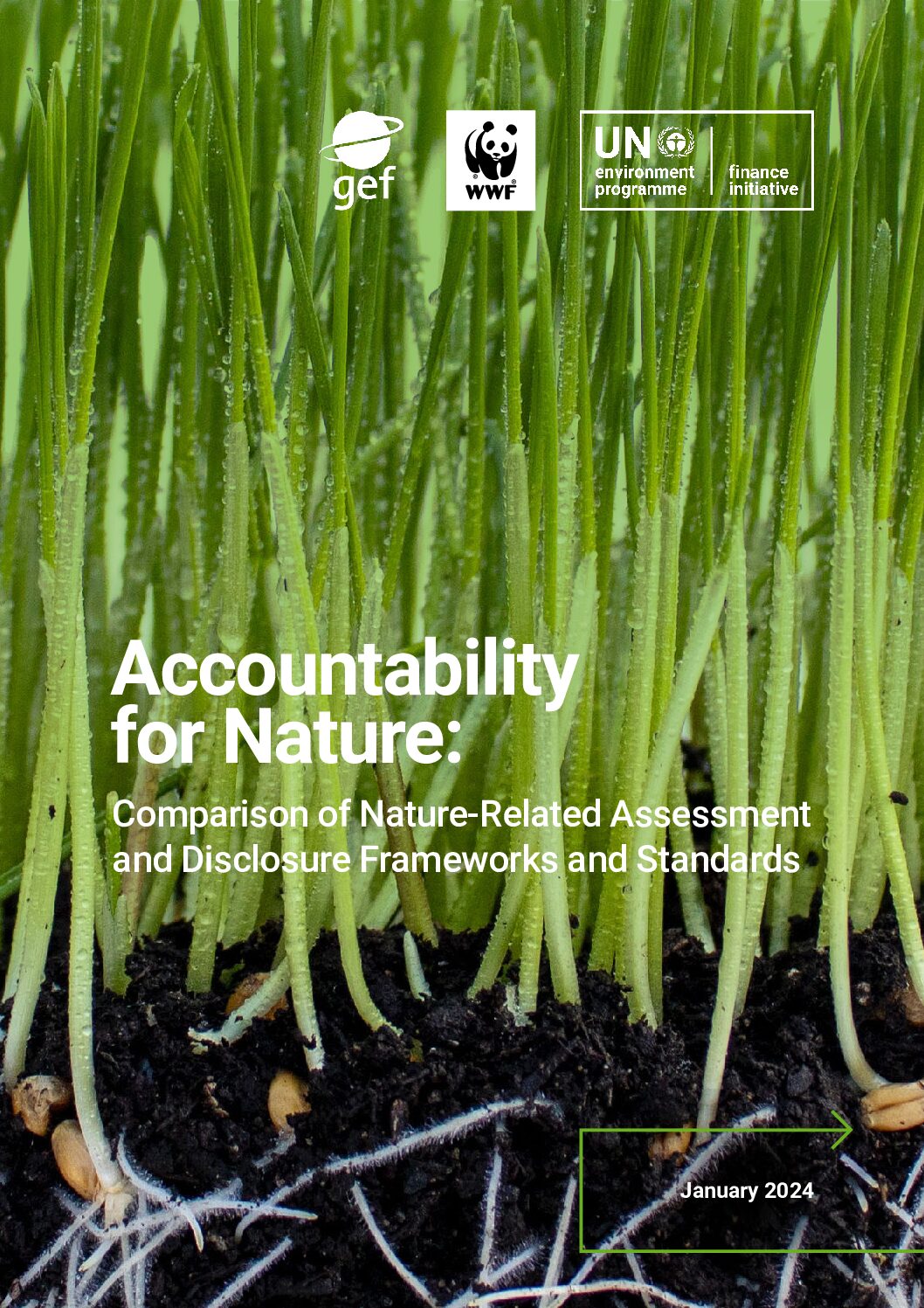
This report provides an overview of the key methodological and conceptual trends among the private sector assessment and disclosure approaches on nature-related issues.